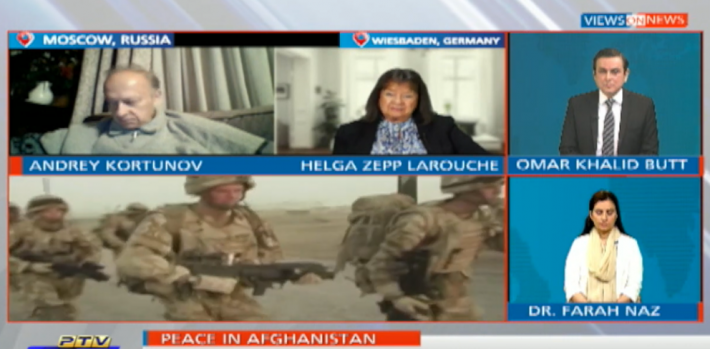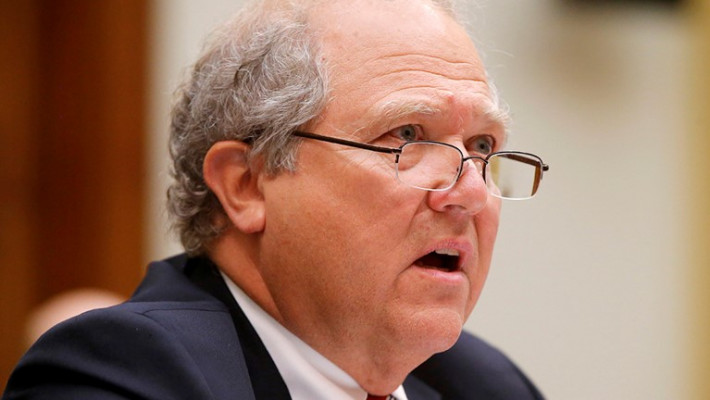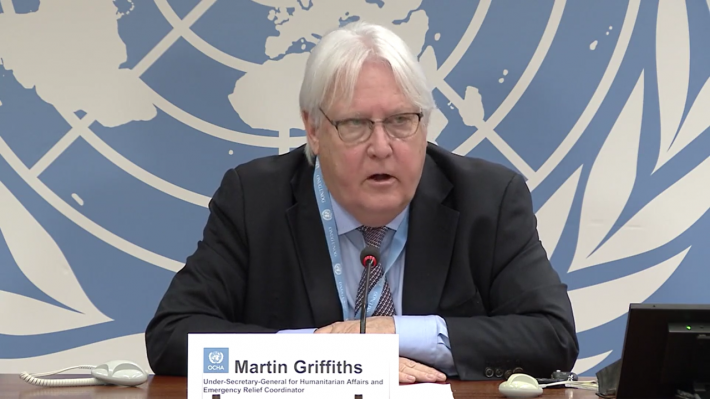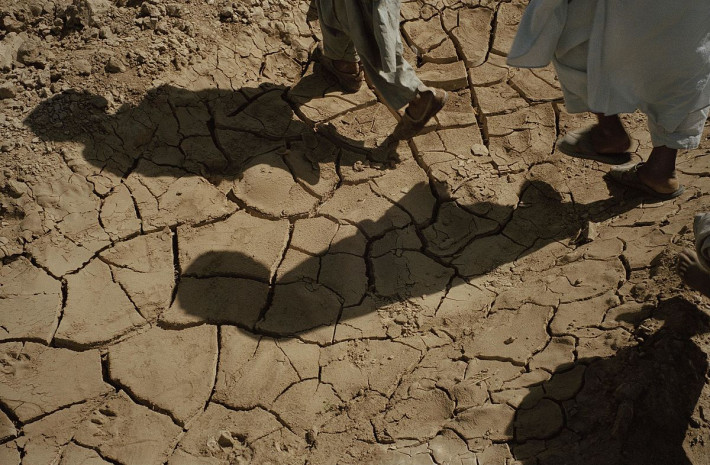Oct. 30 (EIRNS)–Schiller Institute founder and President, Helga Zepp-LaRouche, in a discussion on Afghanistan Oct. 29 on Islamabad TV, said that she is promoting the Schiller Institute’s proposed solution to Afghanistan, in terms she calls, “Operation Ibn Sina.” Zepp-LaRouche participated on the program from Germany, and has indicated that she will be filling out this “Ibn Sina” initiative very soon.
She stressed at the outset that we are “at a watershed” time, in which the United States and other nations now holding back, must instead work closely with the Afghan government, which is the Taliban. Release the Afghan government’s funds, support stabilization and a future. The alternative is chaos, more opium production, mass death and terrorism.
The TV broadcast was PTV World, hosted by Omar Khalid Butt, on his Views on News program, whose additional guests for the 42 minute discussion were Dr. Andrej Kortunov, Chairman of RIAC (Russian International Affairs Council) in Moscow, and Dr. Farah Naz, foreign affairs expert in Pakistan.
Zepp-LaRouche explained her proposal, in her closing remarks, addressing the significance of Ibn Sina. “He was a doctor, who probably was born in what is today Afghanistan, and he was the most famous doctor until the 17th century, who wrote books which were studied in all of Europe.
“So he’s a hero in the history of Afghanistan., and right now there is a huge health crisis—COVID-19. More than 2000 hospitals have closed down…
“The international community—everybody who wants to be part of the solution, [must] help to build up a modern health system in Afghanistan, as the first step to stabilizing the situation, [therefore] give that the name, Ibn Sina.
“He can rally all the different ethnic groups inside Afghanistan, because he’s a figure of the national history, a hero; and he gives pride, and also hope, for a good future in Afghanistan.
“And building a modern health system can be the first step, because to build a modern system, you need energy, water and infrastructure…”
Deadly Great Game
Butt began his program by asking the guests to address all aspects of the significance of the crisis situation in Afghanistan, including “the geopolitical and strategic.” In opening the discussion, he showed the video clip of Russian Foreign Minister Sergey Lavrov issuing a call at a Tehran conference (by video) earlier this week, that Afghanistan’s neighboring countries “not allow a military presence of U.S. and NATO forces which plan to move there after leaving Afghan territory.”
Zepp-LaRouche denounced such a prospect as a continuation of the British Great Game, which is unacceptable. Dr. Naz put forward that chaos can well be “the larger goal” of Western circles, which see the rising of China as a threat to be stopped, and are perpetrating vast harm in the Afghanistan region “by design.” Zepp-LaRouche described the West as “in a real collapse phase,” and should shift, instead, to working with China’s Belt and Road Initiative. In the immediate term, massive aid must be supplied to Afghanistan to prevent genocide.
The same day at the Pakistan TV colloquy, the latest grim report on the humanitarian situation in Afghanistan was summarized by UN Undersecretary for Humanitarian Aid, Martin Griffiths, in an AP interview. He said, “The needs are skyrocketing.” The Winter snows have started. The World Food Program, which had already been supplying daily food, not just supplemental aid, to four million people, is now facing this number rising to 12 million people. These are people completely dependent on receiving all their daily food, or they will die. In addition, another 12 million need supplemental food.
Dr. Kortunov led off his remarks with three fundamental points: supply the food, act on the medical needs, COVID-19 in particular, and get fuel to people. Later in the dialogue, he forcefully made the additional point that, with the right policies and follow through, we could expect to see Afghanistan, this beautiful mountainous nation, be “the Switzerland” of Central Asia. There are the soils, the water, the location, the resources, the youth and all the other assets.
The full PTV World broadcast can be reviewed here.

















